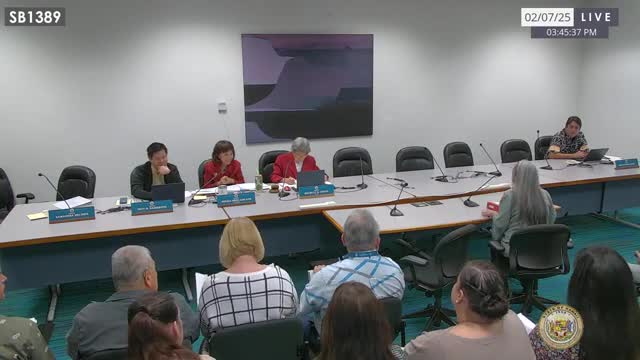Measure to expand therapists’ authority for DOE services fails after lawmakers and professional groups raise concerns
Get AI-powered insights, summaries, and transcripts
Subscribe
Summary
The Education committee rejected SB1389, a proposal to let DOE-employed or contracted occupational, physical and speech therapists diagnose conditions treatable by their services, after professional boards and senators raised legal and scope-of-practice concerns.
A bill to expand the scope of practice for occupational therapists, physical therapists and speech-language pathologists working for or contracted by the Department of Education failed in the Education committee after a contentious hearing and disagreement among members.
SB1389 sought to allow those therapy professionals to diagnose medical conditions that could be treated with their services so the DOE could seek reimbursement and better provide services. DOE representatives said the change was intended to create conditions that would allow the department to claim reimbursement for occupational, physical and speech services. Several license-board executive officers (Boards for Speech Pathology and Audiology, Physical Therapy, Occupational Therapy) and professional associations provided written testimony; testimony at the hearing included both support and opposition.
Opponents, including the American Physical Therapy Association of Hawaii and some board representatives, said the bill either would not achieve its intent or risked inappropriately expanding or constraining professional scope. Committee members expressed concern about whether it is the role of schools to perform medical diagnoses and whether statutory language in the bill could require professions to act beyond their licensure standards. Senator Hashimoto and others said language — particularly the phrase “medical diagnosis” — needed refinement to avoid asking therapists to diagnose conditions outside their scope.
The committee voted; the measure failed on a 2–3 vote (two ayes, three noes). Committee discussion noted the potential fiscal benefit of reimbursement but also emphasized unresolved language and professional-licensure concerns that opponents said could create legal and practice risks if enacted without clearer definitions and limits.
Votes and outcome: The committee’s recommendation to pass with amendments failed; the clerk recorded “Measure fails. 2 ayes, 3 noes.”
Why this matters: The vote leaves in place current limits on therapists’ authority to diagnose in DOE settings. Proponents said the policy was necessary to allow DOE to claim reimbursement for services; opponents and licensing boards argued that the statute as written risked stepping beyond licensed practitioners’ defined scopes of practice and that clearer terminology or alternative reimbursement strategies are needed.
